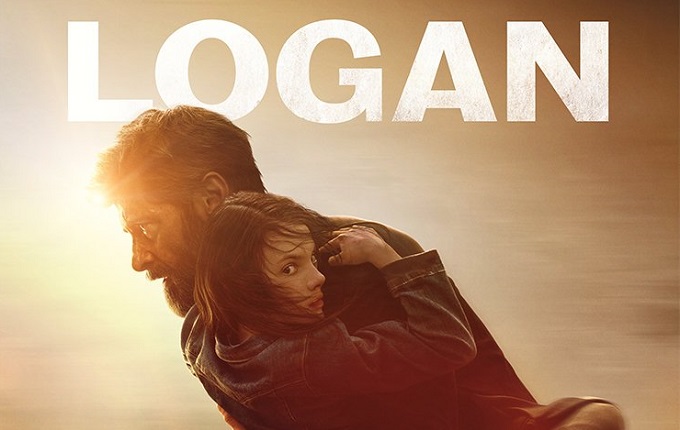Kong Skull Island Review

The Plot
In 1973 team of explorers and soldiers travel to an uncharted island in the Pacific, unaware that they are crossing into the domain of monsters, including the mythic Kong.
The Good
When going into Kong: Skull Island, you may be inclined to compare it with 2014’s Godzilla of which this film is the first in an apparent new monster-filled cinematic universe leading to an upcoming versus film. One of the much discussed downsides to director Gareth Edwards’ take on Japan’s most famous lizard was the amount of screen time its titular character received. Fortunately, Kong’s director, Jordan Vogt-Roberts (The Kings of Summer) and writers Dan Gilroy, Max Borenstein and Derek Connolly manage to smash away any fear of ape absence with an impressive array of cgi and action which will make you yearn for a Kong/Godzilla fight before the credits have even begun.
Set in 1973, Skull Island follows a star studded team of explorers, headed by John Goodman’s Bill Randa and accompanied by Samuel L. Jackson’s Preston Packard and his team of soldiers as they set out to discover what lies on Skull Island. Their Apocalypse Now inspired arrival is soon cut short by Kong himself in an awe inspiring action sequence that will have you on the edge of your seat. With the team now split up on an island that has no map, it is up to Tom Hiddleston’s smoldering adventurer James Conrad to keep more people from dying, while Brie Larson’s Marson Weaver puts her photography skills to the test while occasionally kicking ass. One of the most refreshing things about the film is Weaver’s absence of any notable romantic storyline. For a franchise which has in the past, not been as fairly equal to its female characters as one could hope, Weaver remains a strong and independent character even when she has her moment with Kong.
In addition to the already full cast, John C. Reilly also joins the team as Hank Marlow, a World War II soldier who, after being left stranded on the island with only his Japanese counterpart for company, has become an unwilling inhabitant of the island, learning to live under the rule of its 328 foot king. Reilly brings some much needed humour to the film alongside Hiddleston’s serious(ly handsome) acting.
Even this amount of stars aren’t able to ape the presence of the films main star. Industrial Light and Magic have managed to pull of a superb job of bringing King Kong back to the big screen with some amazing CGI work. Kong is certainly big enough to go toe to toe with Godzilla in 2020 and this writer cannot wait to see more!
The Bad
Anyone looking for more than a simple monster movie may feel a tad short changed come credits time, as, while the film manages to introduce the bulging cast list with ease (take note Suicide Squad) and does a few interesting things with its period setting, it’s never enough to really grasp onto.
On the subject of Suicide Squad, Kong: Skull Island also manages to get away with its 70s laden soundtrack by the skin of its teeth. It’s one verse away from becoming truly grating.
The Ugly Truth
Featuring more than enough ape action and an impressive cast, Kong: Skull Island manages to bring back Hollywood’s most famous monkey with a bang and then some. Go in expecting a monster movie and you’ll come out satisfied. Expect any more and you may feel left wanting.
Review by Johnny Ellis
Amy Schumer The Leather Special Review

The Plot
Following a meteoric pop culture rise Amy Schumer is given a further celebratory Netflix original comedy special.
The Good
If you already have a Netflix subscription you don’t have to pay to watch this.
The Bad
Schumer’s entire special is unashamedly devoted solely to the one subject, herself. Obviously it’s not uncommon for stand-up comics to draw heavily from their own daily existence as a source of anecdotal humour. In fact it’s an industry standard cliché. Unfortunately in Schumer’s case her material is an unrelenting and often uncomfortable blend of demeaning self-loathing and poorly disguised narcissism.
For those that care to dwell on it there’s also an obvious irony and irritating hypocrisy in the fact that Schumer has become the most unlikely of feminist icons. While mainstream recognition is often regrettably elusive for female comics it’s somewhat tragic that so many feel obliged to award Schumer de facto ‘role model’ status merely due to fortuitously becoming a household name.
Given an unconscionable amount of public attention and apparently free comedic reign it’s very depressing that Schumer only seems able to use her implausible fame and this latest comedy special to regurgitate lazy misogyny mistakenly passed off as some kind of ironic self-empowerment.
Despite Schumer’s frequent headline grabbing social media rants about the cruelty of trolls and everyday sexism, her entire comedic act has always been and sadly remains built around endlessly ’body shaming’ and ‘slut shaming’ herself. It’s increasingly hard for even Schumer’s fiercest of supporters to deny or defend the bizarre schizophrenia of persistently virtue signalling about feminist issues and yet chronically undermining them in the worst ways possible.
To put it in some context just how depressingly dire the situation actually is, an entire third of this high profile ‘comedy special’ is exclusively comprised of jokes about how bad Amy Schumer’s vagina smells. That’s a huge chunk of material spent literally wallowing in disgust at her own genitals and asserting that the same criticism actually applies to all women.
To sum up the rest of Schumer’s set she makes awkward jokes about being an obnoxious blackout drunk, binge eater and self-proclaimed slut. Constantly reminding audiences how inspiringly self-confident she is then immediately lamenting how increasingly fat, butch and unstylish she feels. Schumer offers up ‘inspiring’ epiphanies such as the reassurance that men will at least always want to have anal sex regardless of how slovenly unattractive women allow themselves to become. Anecdotes about explosive diarrhoea and being frequently covered in messy male ejaculate round out Schumer’s grim assault on her own self esteem.
The one time Schumer lurches away from self-abuse she spends a few minutes defending her very public intervention into the acrimonious American gun law debate following a tragic shooting at a screening of Trainwreck. Whilst providing temporary relief from the tirade of self-deprecation it’s a heavy handed attempt to be suddenly ‘serious and important you guys’ that will only further irritate those that disagree with her politics or merely dislike obvious Social Justice Warrior antics.
The Ugly Truth
Much like Schumer’s overly hyped big screen outing Trainwreck there will be those that do find this new special highly amusing. It’s just ironic those people will likely be a strange mix of misguided 4th wave feminists and apologetically sexist men. Those looking for feminine themed comedy treats on Netflix would do much better to check out Iliza Schlezsnger’s offerings instead.
Review by Russell Nelson
We Are X Review

The Plot
We Ae X is a documentary film exploring the unique musical career and impact of legendary Japanese rock band X Japan. Lead by enigmatic musical icon Yoshiki the band transformed Japanese music forever and continue to reach an ever growing army of devoted fans around the world.
The Good
Director Steven Kijak and the production team behind award winning Searching For Sugar Man and The Imposter have delivered yet another outstanding piece of well-crafted documentary cinema with We Are X. The film subtly captures both the emotional core of an iconic rock band and also incorporates much of their unique visual flare and musical magic.
Whether or not audiences find X Japan’s truly original blend of classical, metal and rock music matches their own usual musical appetites, nonetheless the band’s story is packed with a mix of tragedy and triumph that is compelling and translates far beyond barriers of language, pop culture and musical taste.
Combining extensive interview access with band members, archival footage, fan contributions and live performances the film presents a truly immersive experience. In particular the extent to which the film documents and explores the personal tragedies that have fuelled the creative process of band leader Yoshiki may surprise those expecting merely a polished PR friendly celebration of a popular artist.
The film’s candid documentation of how the death of his father, former band members and personal demons continues to haunt and motivate the soft spoken rock and classical music superstar is truly compelling and emotionally impactful. The film serves not just as a superficial homage to a popular band but as a true exploration of the deep routed connection between great art and personal turmoil.
That being said, amongst the personal reflection and philosophising the film also offers fans an enjoyable sample of the varied musical offerings that have made X Japan and enduring and beloved household name in their native Japan. The film definitely challenges and greatly dispels any lingering misconceptions about the limitation of Japanese music. It showcases one of the country’s most complex and versatile rock creations as opposed to the perhaps more familiar cheesy pop idol clichés.
The Bad
As with all musically themed documentaries it’s difficult for a film to ever truly capture the thrill of a live performance and the atmosphere of screaming fans. Luckily We Are X never falls into the trap of merely being a concert film or feeling like an extended music video.
Of course the personal journey of the band and their impact on Japanese culture may innately hold less exciting interest for an international audience still largely unfamiliar with their work. However the film does well to serve both as a loving celebration for existing fans and a convenient introduction for the uninitiated.
The Ugly Truth
We Are X is a well-crafted and fascinating insight into the pain, sacrifice and success of one of the world’s biggest rock bands. Whether audiences are already familiar with their unique work or merely discovering the band for the first time, in either case this film is of equally compelling interest.
Review by Russell Nelson
Watch In depth Interviews below with X Japan star Yoshiki and Director Steven Kijak:
Logan Review

The Plot
In 2029 following the demise of the X-Men and with just vanishing traces of Mutants in the world time has finally caught up with virtually indestructible hero Wolverine. Now an old man himself Logan is hiding away by the Mexican border with a senile Charles Xavier. But when he crosses paths with a young mutant that shares his gifts he also rediscovers the rage and compassion that once made him a powerful hero Logan will enter the fight for good, one last time.
The Good
Ever since his last minute replacement casting Jackman has managed to turn Wolverine into one of cinemas most iconic and universally popular heroes. Though more statuesque than the traditionally diminutive comic book character, Jackman captured perfectly Logan’s surly rage filled anti-hero charms. In a fantasy world often filled with heavy handed philosophising and do-good heroes he was a perfect sarcastic antidote. It’s difficult to understate just how many times his cigar chomping alpha male machoism saved the franchise from the bland boredom of social justice themed heroes and villains.
Jackman almost single handily carried X2, Last Stand, Days of Future Past and shamelessly stole the show in Apocalypse during his brief but brutal cameo. So it’s only right that Jackman gets to say a proper goodbye to the character in glorious and gory fashion.
Logan undeniably serves as a fitting apology to fans for past disappointments, most notably Jackman’s first solo effort X-Men Origins Wolverine. The faltering attempt at a standalone Wolverine film was ruined by utterly redundant storytelling, sanitised action and notoriously poor use of some of the most popular supporting characters in the X-Men universe. Thankfully this studio and Jackman have learnt all those lessons very well by now.
Liberated from the increasingly confusing timelines and muddled continuity of the long running X-Men franchise, Logan takes the opportunity to tell a simple standalone story focused fully on action and the emotional core of the character. Much like Ryan Reynold’s triumphant Deadpool, Logan also fully embraces the chance to inject a deeply dark and mature humour into the otherwise mostly sanitized X-Men cinematic universe. Unleashed form the metaphorical shackles of keeping things PG 13 it’s certainly fun to see just what blood soaked damage Wolverine’s ademantium claws are truly capable of.
Fan favourite Patrick Stewart and young newcomer Dafne Keen proved a perfect foil for Jackman’s raw and broken down performance. Keen is an astonishing delight as a pint sized mutant packed with feral surprises. It’s a star making turn instantly comparable with Chloe Moretz’s blood soaked breakthrough as Kick-Ass teen vigilante Hit Girl. Those expecting her to merely be a convenient plot device will be shocked to see just how much of a violent and scene stealing asset she is for the film.
The Bad
Long-time fans of the X-Men comics and films will welcome the change of pace and more mature tone of Logan. However it’s safe to say it’s unrelentingly bleak and blood drenched approach may not appeal as much to more casual mainstream viewers and younger fans. Logan is a film unapologetically aimed at a loyal audience that has grown with the character over the past two decades. That audience may be ready for this kind of sombre themed X-Men film, but popcorn munching crowds looking for escapist costume clad fun may not be quite so prepared.
As an example, Charles Xavier has consistently remained the calm reassuring centre of the X-Men universe. Whether played by Stewart or in his younger form by James McAvoy, Professor X has always been defined by his steadfast decorum and dignified gravitas. For this reason it’s a little jarring to see his devolved into a mentally befuddled potty mouthed 90 year old. Of course some fans will very much enjoy hearing Stewart dropping f bombs and the British thespian clearly delights in finally being unleashed to inject some R rated humour into the iconic prim and proper role. However it’s safe to say that for others the novelty quickly wears off leaving a somewhat undignified aftertaste.
Overall while many fans will relish in finally seeing a more brutal and stripped down version of their favourite hero, others may find it a little less satisfying than the happy soft focus climax Days Of Future Past offered to Wolverine’s cinematic timeline. Also while Logan tries very hard to present the most graphically authentic version of the character the film does occasionally still slip back into comic book clichés of evil clones and robot super soldiers.
The Ugly Truth
Logan is as fitting an ending to Jackman’s long running portrayal of the most popular X-Men hero as fan could possibly have hoped for. It is more dark, violent and unconventional than any of the versions of Wolverine seen on screen before. Ironically with his absolutely last outing Jackman might have actually finally given comicbook fans exactly what they always wanted from the character.
Review by Russell Nelson
Certain Women Review

The Plot
Inspired by the various short stories of Maile Meloy, Certain Women follows the intersecting lives of four women in small town America. Following a lawyer, domineering wife, lonesome rancher and exhausted teacher the film pieces together a loose narrative built around their collective and mostly mundane daily existences.
The Good
Director Kelly Reichardt is a celebrated independent cinema star and this film in particular attracted much praise and even the Best Film award at this year’s London Film Festival. The Certain Women in question are all played by accomplished and popular stars, lending an instant attractive credibility to even the most understated of performances. Michelle Williams, Laura Dern, Lily Gladstone and Kirsten Stewart each do their very best to inject as much meaningful emotional subtext as they can into their respective performances.
Supporting turns from Jared Harris, James Le Gros and Rene Auberjonois also helps to maintain a dramatic credibility for proceedings. Maintaining audience interest even when the films slow pace and minimalist style might be legitimately testing their patience. The film’s ambitious aspirations to spin a loose collection of trivial daily occurrences into a feature length narrative makes having a strong cast all the more essential.
Special credit should go to relative newcomer Lily Gladstone and Kristen Stewart. Their portrayal of the unlikely relationship that gradually emerges between a shy rancher and a flustered young teacher is arguably the film’s most intriguing passage. Stewart’s selfless supporting turn allows Gladstone to create a credible tender awkwardness and clear unspoken subtext to their dynamic.
The Bad
Those that lament indie cinemas many cliché mannerisms will certainly find plenty to dislike about Certain Women. For those that see this type of film as a meditative subtle masterpiece there will no doubt be many that view it instead as simply slow moving and even dull. To put that debate in some context, an entire third of the film is essentially devoted to the slight social awkwardness of purchasing a pile of rocks from an old man who may have some minor reluctance about selling.
Combined with a largely absent soundtrack and stark minimalist visuals, the film has a generally muted and reserved quality. Though undoubtedly the strongly assembled female cast and director Reichardt envisage the film as being some kind of delicate examination about a feminine experience of small town life, in truth it’s often somewhat difficult to discern exactly what the intended message if any is meant to be behind the mostly banal proceedings.
Even when the film does occasionally deliver something potentially dramatic like a hostage crisis or romantic betrayal, it’s handled in such a stilted and trivial way that it largely stifles any actual excitement or intrigue. The film’s vague slice of life narrative approach also means that perhaps too much is left unspoken and unresolved. Audiences accustomed to seeing dramatic situations played out to a satisfying conclusion and meaningful resolution may not welcome the film’s more abstract approach.
The film consistently asks a lot of audiences to infer their own meaning and significance to proceedings. At times it also seems overly confident that its talented cast are simply compelling to watch no matter how potent that actual drama on display actually is.
The Ugly Truth
Certain Women will be enjoyed by those with a particular penchant for slow moving indie drama or perhaps with a special affection for any of the talented actresses involved. However for those less eager to work hard to find meaning in the mostly languid proceedings the film may prove fairly underwhelming.
Review by Russell Nelson